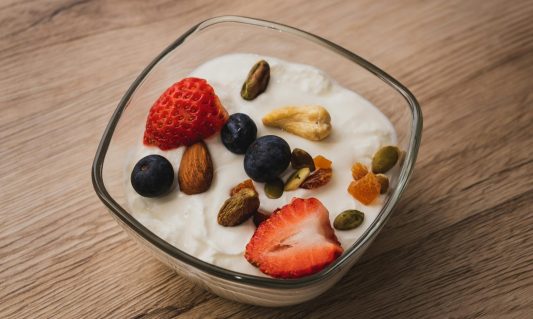Staying on top of your nutrition can make all the difference in how you look, feel, and perform. If you are in the gym or generally take care of your health, you likely pay attention to your calorie intake and how many grams of protein you are consuming daily. While both of these factors are important, and I make them a priority for all clients as a personal trainer, probiotics matter a lot, too.
If you have been considering taking your nutrition more seriously, fermented foods belong in your daily diet. Keep reading to discover what role they play in your body and the best fermented foods for gut health.
Why gut health matters more than you think

Gut health plays a critical role in overall well-being, far beyond just digestion. The gut houses trillions of bacteria that influence everything from nutrient absorption to immune function. A balanced gut microbiome helps protect against illness, supports efficient energy use, and even impacts mental health through the gut-brain connection.
Poor gut health can lead to a variety of issues. One NIH study identifies “diseases such as inflammatory bowel disease (IBD), diabetes, asthma, and psychiatric disorders including depression, anxiety, and autism.” This shows just how important maintaining a healthy gut is, and by doing so, you can positively impact your metabolism, hormone regulation, and muscle recovery.
Simple habits like eating fiber-rich foods, staying hydrated, managing stress, and incorporating fermented foods can strengthen gut function. Prioritizing gut health not only improves physical performance and energy but also supports long-term disease prevention and overall vitality, making it a foundational aspect of men’s health that is often overlooked.
How fermented foods improve digestion, focus, and overall wellness

Fermented foods support digestion by introducing beneficial bacteria and enzymes that help break down food more efficiently. This improves nutrient absorption, reduces digestive discomfort, and promotes regularity, ensuring the body can make the most of the nutrients it receives.
Beyond digestion, they enhance metabolic efficiency, helping the body convert energy more effectively and recover faster from exercise or other physically demanding activities. This can lead to improved endurance, sustained energy, and better overall performance.
Fermented foods also contribute to overall wellness by supporting a diverse gut microbiome, which plays a role in regulating hormones, reducing inflammation, and maintaining immune function, as we mentioned before. Over time, these benefits help men maintain energy, resilience, and vitality, supporting both physical and mental performance, and providing a solid foundation for long-term health and optimal everyday functioning.
5 easy fermented foods every guy can add to his diet

- Yogurt: A convenient source of probiotics and protein, yogurt supports digestion and can be eaten for breakfast, as a snack, or even in recipes like smoothies and parfaits.
- Kefir: This fermented milk drink contains a wide variety of beneficial bacteria. It can be consumed on its own, added to smoothies, or used in recipes that call for liquid dairy.
- Sauerkraut: Tangy and nutrient-dense, sauerkraut is great for sandwiches, salads, or as a side dish. It helps improve gut diversity and supports digestive health.
- Kimchi: A spicy fermented vegetable dish, kimchi provides probiotics and antioxidants while adding bold flavor to meals.
- Miso: This fermented paste is ideal for soups, sauces, or marinades. It contains enzymes and probiotics that aid digestion and nutrient absorption, supporting overall wellness.
How to work fermented foods into your routine without overthinking it

Incorporating fermented foods into your routine doesn’t have to be complicated. Start small by adding one simple item each day. For example, include a serving of yogurt or kefir at breakfast or as a snack.
Pair fermented vegetables like sauerkraut or kimchi with lunch or dinner. They can easily complement sandwiches, salads, or side dishes without requiring extra cooking time. Miso can be added to soups, sauces, or marinades to boost flavor and probiotics effortlessly.
Consistency is more important than quantity at first, and consuming too much right away may cause digestive issues. Focus on making small portions of these foods a regular part of your meals. Over time, your gut will adjust, and incorporating fermented foods will feel natural, supporting digestion, immunity, and overall wellness without adding stress to your daily routine.




